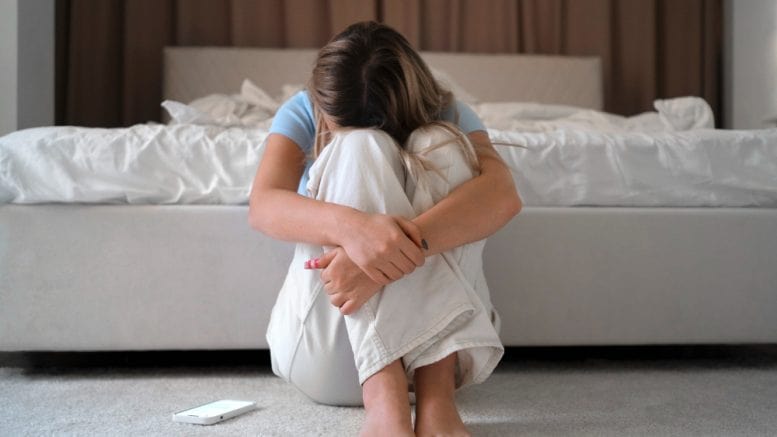Introduction: What Is Trauma in the Brain?
Childhood trauma is personal, and everyone has their own unique experiences. I remember a particular day from my childhood when everything felt terrifying. I was around 8 years old, and a family argument spiralled out of control. Voices were raised, objects were thrown, and I felt completely powerless. That night, I sat in my room, shaking with fear, wondering if things would ever be okay. For years after that, every time I heard raised voices, I’d feel my heart racing and a deep sense of panic.
One of my close friends shared a similar story. She grew up in a household where emotional abuse was constant—her parents belittled her and her siblings. She often hid in her room, feeling unloved and unwanted. She shared that, even now, as an adult, she constantly feels the need to prove herself to others because she never felt “good enough” as a child.
These stories may seem different, but they have one thing in common—unresolved childhood trauma that carries into adulthood, affecting relationships, self-esteem, and daily life.
Trauma, in its simplest form, is the brain’s response to deeply distressing or disturbing experiences. When we encounter traumatic events, our brains release stress hormones like cortisol and adrenaline. These hormones prepare us to either “fight or flee” from danger. But when a person, especially a child, is exposed to prolonged or repeated trauma, their brain stays on high alert. Over time, this constant state of anxiety or fear rewires the brain, leading to long-lasting emotional, mental, and physical impacts.
What Is Childhood Trauma?
Childhood trauma refers to any experience during the formative years (ages 0-18) that causes overwhelming stress or emotional damage. This trauma can take many forms—physical or emotional abuse, neglect, witnessing violence, losing a loved one, or growing up in an unstable household. The way children experience trauma can vary, but its effect on their development is profound.
Another friend lived in an environment of neglect. He recalls how his parents were too busy with their struggles to care for him. They weren’t intentionally harmful, but their absence left a deep void. He grew up feeling invisible and now struggles with forming close relationships as an adult, fearing that he’s not important enough to be loved.
Types of Childhood Trauma
Children can experience various forms of trauma, each leaving its unique mark on their development. Some common types include:
- Physical Abuse – When a child is intentionally harmed or injured, it creates a deep sense of fear and helplessness.
- Emotional Abuse – This involves constant criticism, humiliation, or verbal attacks, which can erode a child’s sense of self-worth.
- Neglect – Children need love, care, and attention. Being deprived of these basics can lead to feelings of abandonment and unworthiness.
- Witnessing Domestic Violence – Even if the child is not the direct victim, witnessing violence can be just as damaging, causing anxiety, fear, and a constant state of alertness.
- Losing a Parent or Loved One – The sudden death of a caregiver or sibling can create a deep sense of loss and insecurity.
- Bullying – Being the target of bullying can lead to feelings of shame, fear, and self-hatred.
How Childhood Trauma Affects Kids: The Immediate Impact
Children experiencing trauma often show signs early on. According to psychiatrists, trauma can affect a child’s ability to feel safe, connect with others, and trust the world around them. Some common behaviours include:
- Hypervigilance: A child may constantly be on edge, waiting for the next threat. This can make them anxious, easily startled, or even aggressive.
- Withdrawal: Some children shut down emotionally. They may isolate themselves from family and friends, unable to form healthy relationships.
- Difficulty in School: Concentration becomes a challenge when a child’s brain is constantly in survival mode. They may fall behind academically, not because they lack intelligence, but because they cannot focus on learning.
Dr. Bruce Perry, a leading psychiatrist specialising in childhood trauma, explains that children’s brains are highly adaptive. When exposed to traumatic environments, their brains adjust to survive. This means heightened responses to stress and a difficulty regulating emotions.
The Long-Term Effects: How Childhood Trauma Shapes Adulthood
Children don’t just “get over” trauma. If left untreated, it follows them into adulthood, manifesting in various ways. Psychologists call this “developmental trauma,” and it can affect virtually every aspect of life:
1. Relationship Challenges
Adults who experienced childhood trauma often struggle with forming healthy relationships. My friend, who grew up feeling invisible due to neglect, now avoids intimacy, fearing rejection. Others may develop insecure attachment styles, becoming overly dependent on or distant from their partners.
2. Mental Health Issues
The link between childhood trauma and mental health disorders like anxiety, depression, PTSD, and even personality disorders is well-documented. Many adults, even those who have seemingly “moved on” from their childhood, continue to battle with chronic mental health issues.
3. Physical Health Problems
The impact of trauma isn’t just psychological; it’s also physical. Research by the CDC shows that adults who experienced childhood trauma are more likely to suffer from chronic illnesses like heart disease, diabetes, and obesity. The body holds onto stress, and over time, this takes a toll on physical health.
4. Difficulty Managing Emotions
Trauma often leads to emotional dysregulation. Adults who were traumatised as children may find it hard to manage their anger, sadness, or fear. Simple, everyday stresses can trigger an intense emotional response that feels out of proportion to the situation.
5. Poor Self-Esteem and Self-Worth
Children who were abused or neglected often grow into adults with low self-esteem. They may struggle with feelings of inadequacy, constantly doubting their abilities or worth. This can lead to difficulties in both their personal and professional lives.
A famous case is that of Oprah Winfrey, who has been open about the sexual abuse she suffered as a child. In interviews, she’s described how the trauma affected her self-worth, leading to a difficult path toward healing and success.
Many adults with unresolved trauma struggle in silence, feeling shame or guilt for their experiences. They may believe they’re “overreacting” or “too sensitive,” when in reality, their emotional responses are rooted in childhood trauma.
Growing Up with Trauma: How It Shapes Adult Life
Kids who grow up with trauma often carry unresolved issues into adulthood. They may experience:
- Trust Issues: Growing up in an environment where trust was broken makes it difficult to trust others.
- Fear of Abandonment: Those who experienced loss or neglect may fear being abandoned by loved ones.
- Difficulty Handling Stress: Adults with trauma often overreact to stress, as their bodies are conditioned to respond to danger.
- Perfectionism or Self-Sabotage: Some adults try to “prove” their worth through perfectionism, while others may self-sabotage to avoid the risk of failure.
Healing Childhood Trauma: Is It Possible?
The good news is that healing from childhood trauma is possible, though it requires work. Therapy, especially trauma-focused therapies like Cognitive Behavioral Therapy (CBT) and Eye Movement Desensitization and Reprocessing (EMDR), has proven highly effective in helping individuals process their trauma and develop healthier coping mechanisms.
Building supportive relationships, practising self-compassion, and addressing unresolved trauma through therapy are all key steps toward healing.
Conclusion
Childhood trauma leaves deep scars, but those scars don’t have to define your life. Understanding the ways in which trauma affects the brain, body, and emotional health can be the first step toward healing. By seeking help and working through these issues, it’s possible to break free from the grip of childhood trauma and live a fulfilling, healthy life.
Remember, trauma may be part of your story, but it doesn’t have to be the end. Healing is possible, and every step you take toward it brings you closer to reclaiming your sense of safety, self-worth, and joy.


Be the first to comment on "Understanding the Lasting Impact of Childhood Trauma on Adulthood"